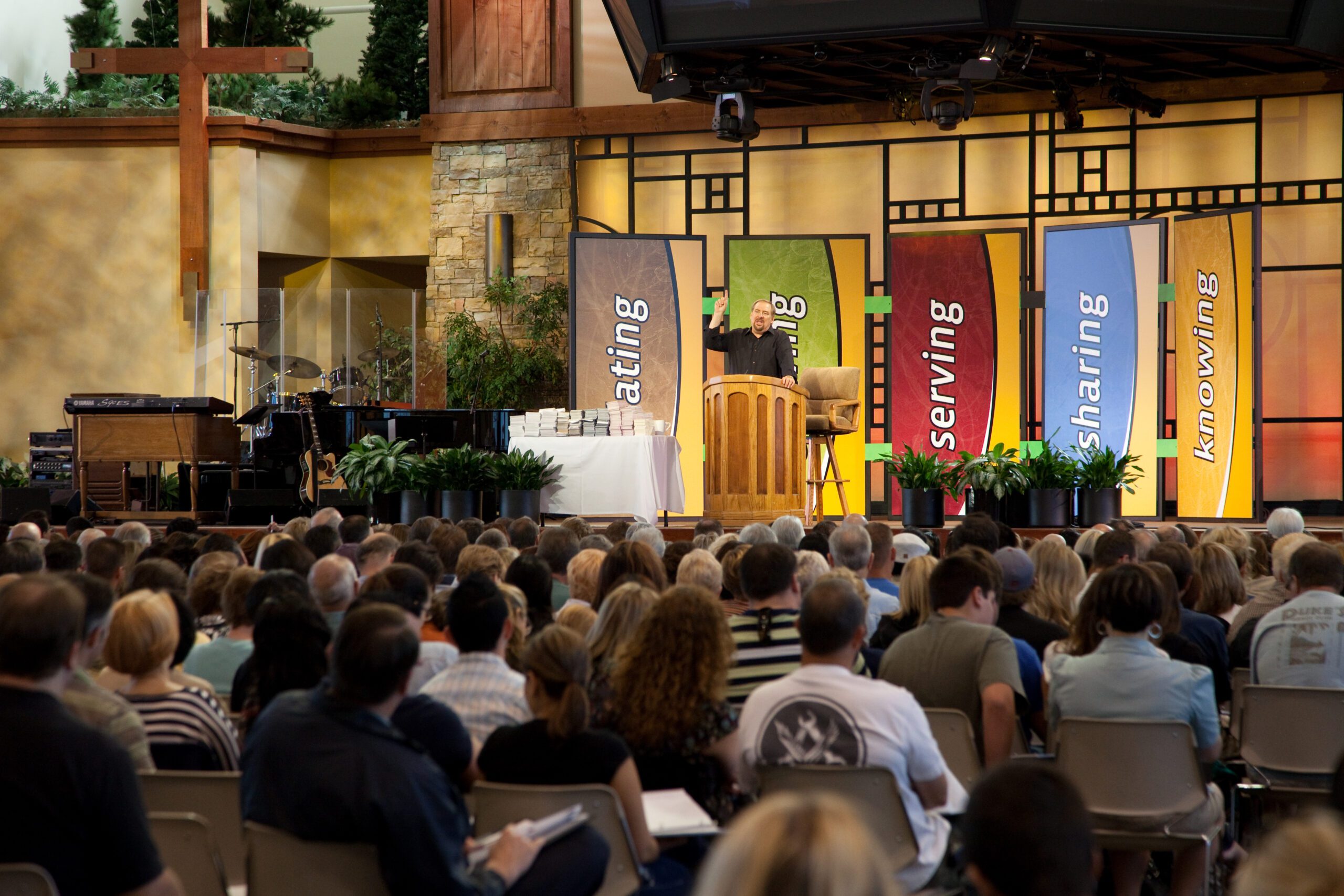FellowshipPreaching/TeachingLeadershipCelebrate RecoveryDiscipleshipSmall GroupsEvangelismWorshipMinistry
Building Purpose Driven Churches the Jesus Way

I was talking with a group of pastors in Rwanda and they asked me to tell them what it meant to be a Purpose Driven® church in as simple a way as possible. I said to them that the simplest way I know how to express what it means to be Purpose Driven is “to build Jesus’ church the way that Jesus wants it built.” Jesus shows us how to build his church in both what he taught and what he modeled.
Being Purpose Driven means you’re seeking as a church to do all that Jesus taught his church to do. “A great commitment to the Great Commandment and the Great Commission will grow a great church.” In the Great Commandment and Great Commission of Jesus you find him talking about the five purposes of evangelism, fellowship, discipleship, ministry, and mission (Matthew 28:18-20). He talks about these purposes not only in these two passages, but also throughout his ministry—possibly most clearly in his teaching to the disciples the night before he went to the cross in John 13-17. It is his church that we are building, so obviously we are going to do the things that he taught us to do in building it.
Jesus not only taught us these principles, he also modeled them for us. I’ve found that for many pastors and church leaders it is the model of Jesus that gives clarity as to what they need to do in their church to balance God’s purposes. One of the simplest ways to look at the ministry of Jesus is to understand that he had a ministry to the crowd and a ministry to the disciples. These two ministries were intertwined. As he ministered to the crowd, he was serving the disciples. As he was teaching the disciples, he was ministering to the crowd. He didn’t serve one or the other, he served both simultaneously.
To be Purpose Driven is to have a ministry to the crowd and a ministry to the disciples. The crowd is the community around you who does not yet know Christ or has not yet connected with the Body of Christ as a place to grow and serve. The disciples, stating the obvious, are the group of believers in your church that you are seeking to help to grow in fulfilling God’s purposes in their lives.
So what does it mean in a practical way to follow the model of Jesus in ministering to the crowd and to the disciples? Here are the two ideas I gave my pastor friends in Rwanda.
Have a ministry to the crowd that includes being welcoming to them in your worship services.
There are many kinds of ministry that we could and should have to the hurting world around us. Those ministries must meet the needs of your community. You help those who are hungry to be fed, those who are addicted to find recovery, those without jobs to find work, those in grief to get support, those without God to know God—the needs are as many as the people in your community. The bridge to people’s hearts is to help them see how Christ can meet their deepest need, whether it be physical, emotional, relational, or spiritual. As that need is met, there must also be a bridge into the fellowship of the church—because it is only in the church that we can find continued healing. Building that bridge has strategic parts to it that include language, culture, music, and accessibility. But above all of that is the simple need to be friendly to new people when they show up. Too many churches still don’t know how to be welcoming to new people. They may welcome them from the front during the worship service, but before and after the service the new person is totally ignored. The new person or family, who may be grateful that the church helped feed them during that week, is left to conclude that while the church wants to help them with food they really don’t want them to be a part of the family. They’re on the outside looking in. I can say that even as a pastor I’ve been to many, many churches where I’ve felt like I was on the outside looking in. I could tell the people in the church loved and enjoyed each other by the way the spoke to each other—I just didn’t feel invited in. I know we don’t do this intentionally, it’s just easier to talk to a friend instead of the person we’ve never met. The point is that we must become intentional. While you may have greeters in your church, being welcoming is not the job of just a few greeters. Every single member is responsible for welcoming a new person at church, just as much as every single member of a family is responsible for welcoming a new baby into that family. The vast majority of people will not automatically be friendly to new people—it goes against our cultural and relational norms. That means it’s up to us as leaders to train people to be friendly, to create a welcoming culture. If people in your church are not being friendly to newcomers, it’s a responsibility that lands squarely on you as a leader. The two most effective ways to teach it are by modeling it yourself and by including stories about it in your teaching to establish it as a value.Have a ministry to the disciples that includes a clear path that teaches them to do all Jesus commanded.
Jesus taught us to “teach them to do all I have commanded you.” He not only taught this, he also modeled it for us in his three years of working with the twelve disciples. Because this calling is so important, it cannot be left to chance. We must give disciples a clear path to living a life of healthy fellowship with believers, growth in Christ, serving others, living on mission, and worship of God. What is that pathway in your church? If you cannot identify it in seconds, I guarantee you that the new person in your church will rarely be able to find it at all. The longer I’m in ministry, the more I appreciate the power of a clear pathway. Pathways inspire direction and movement. If you were to walk up to the edge of a forest thick with trees, your tendency would be to stand and enjoy the view. But if you walked up to that same forest and saw a clear path that wound its way through with beautiful flowers and markers on both sides and a sign over the entrance that said, “This path is for you,” everything in you would want to take that path. When there is no clear pathway in your church, new people tend to stand back and enjoy the view instead of entering in to become involved. At Saddleback, the clearly marked start to the path is the CLASS series: 101 – Discovering Our Church Family 201 – Discovering My Spiritual Growth 301 – Discovering My Ministry 401 – Discovering My Life Mission These classes are the path to get our people started in their growth in God’s purposes. The clear reason for the growth of God’s people at Saddleback is the clear path of these classes where people make a commitment to living by God’s purposes. We’ve taught them almost every month for over 35 years! Why have over 42,000 people been baptized at Saddleback? Because we’ve been welcoming to new people and taught Class 101 every month for 35 years. Why is Saddleback one of the most generous churches in the world? Because we’ve taught Class 201 (which focuses on the habits of Bible study, small group, and giving) every month. How is it that we have over half our members actively involved in over 500 different ministries? Because we’ve taught Class 301 every month. How has Saddleback sent over 14,000 members to do missions in every country on the planet? Because we’ve taught Class 401 every month for year after year after year. Because God is always doing something great and something new, I believe there are churches just starting today that will see far greater fruit than this. And I believe that there are churches that have been faltering for decades in which God wants to do the possibly greater work of bringing new life. Our part is to follow the model and teaching of Jesus and to give a clear path to teach them all to do all that Jesus commanded. To take this from thought into action, let me end with two questions to work on.- How could you train your church to be more friendly through your example and teaching?
- How could you more clearly define your pathway for growth in God’s purposes?







